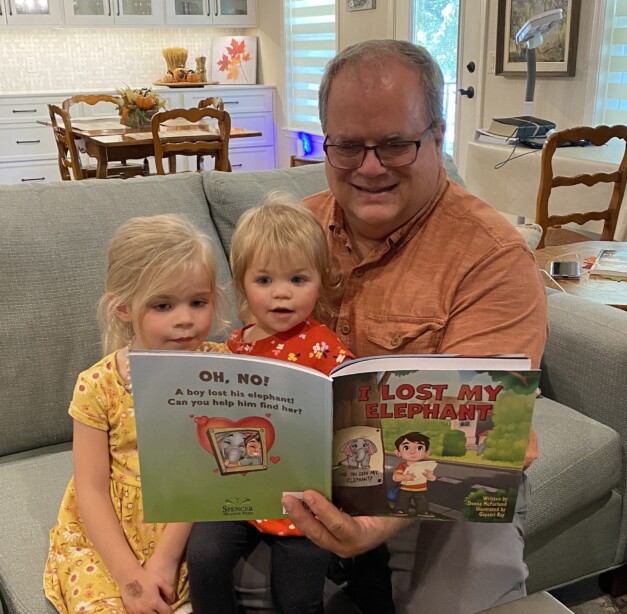I Lost My Elephant
Check out my latest book: I Lost My Elephant! In this entertaining story, a young boy has lost his elephant. As he goes from place to place looking for her, no one knows where she is, but the reader can spot the elephant’s silly antics! Not until the last page does the boy finally see his lost elephant. Sprinkled throughout…
New Duck Books!
Announcing the release of two new Duck and Friends books, now in color! Check out Duck and Friends: Bots in a Box and Duck and Friends Go Into Orbit! Available on Amazon and other online retailers in paperback and kindle. Enjoy!
Writing Rhyming Picture Books Part 1: Rhyming Words and Assessing Meter
Picture books don’t have to have rhyme and meter. My all-time favorite picture book, the one I like to call “perfection in a picture book,” If You Give a Mouse a Cookie, has neither. The Cat in the Hat has both. Another of my favorites, Jamberry, is a rhyming picture book with a different meter on every two-page spread. Nancy…
How Children Learn to Read Part 2: STAND
As children who have been introduced to reading through board books and pictures books (How Children Learn to Read Part 1: SIT) get older, they reach a point where they want to do it themselves. I call this stage STAND. And as delightful as picture books are, many are too difficult to be read by children who are just learning…
Writing Early Readers, Part 2: Using Lexile Levels
Once you understand how the Lexile system works (Writing Early Readers, Part 1: Understanding Lexile Levels), the next step is to use the Lexile system to write at the desired level. This matters most when you are writing books to be read by young readers. Suppose you want to write an early reader for grades K-2. Here’s how I did…
Writing Early Readers, Part 1: Understanding Lexile Levels
The genre of early readers can be fun and delightful (Dr. Seuss’s Green Eggs and Ham) or dull as dry toast (Dick and Jane). Maybe the only element these books have in common is the ease with which they can be read. If you want to write early readers (generally grades K-2), it is necessary to understand concepts that factor…
An Author’s Journey
I have wanted to be an author for almost as long as I can remember. In elementary school I worked on an ongoing series of stories I called Mermaids of the Deep Lagoon, which unfortunately have been lost. But when I was in fifth grade I was very excited to hear that our class was going to write books! After…
How Children Learn to Read Part 1: SIT
As different as children are, they still go through the same basic steps to learn their first skills. Think of a child who learns to walk. First, they have to learn to sit. No one jumps out of their bassinet and walks without first learning how to sit. Then they become mobile, in whatever form that takes. The next step…
10+ Favorite Early Readers, in Order of Difficulty
When children begin to learn to read, they leave the realm of beautifully rich picture books and move on to books with short, easy words. Too many of these books are BORING. The Bob Books were assigned reading in kindergarten. They are set up neatly with easy to sound out three-letter-words, but in our house we found they were not…
Ten Favorite Picture Books
Picture books. The delight of children everywhere. Some books are simple, some are memorable, some have illustrations that deserve viewing in a museum. There are museums devoted to artwork from children’s literature, and someday I’d like to visit one. In our house we went through picture books by the dozen. We owned a handful of favorites, but mostly we checked them out from…










